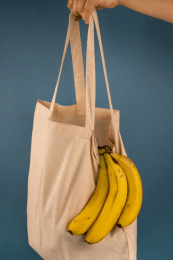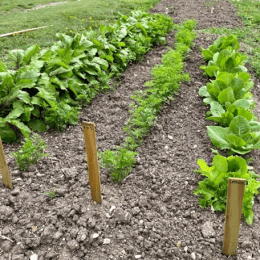Picnic and barbecue season offers a lot of opportunities for outdoor fun with family and friends. But these warm weather events also present opportunities for foodborne bacteria to thrive. As food heats up in summer temperatures, bacteria multiply rapidly.
To protect yourself, your family, and friends from foodborne illness during warm-weather months, safe food handling when eating outdoors is critical.
- Keep Cold Food Cold. Place cold food in a cooler with ice or frozen gel packs. Cold food should be stored at 40oF or below to prevent bacterial growth. Meat, poultry, and seafood may be packed while still frozen so that they stay colder longer.
- Organize Cooler Contents. Consider packing beverages in one cooler and perishable foods in another. That way, as picnickers open and reopen the beverage cooler to replenish their drinks, the perishable foods won’t be exposed to warm outdoor air temperatures.
- Keep Hot Foods Hot. Hots foods should be kept at an internal temperature of 140oF or warmer. This is the temperature that is required to keep bacteria at bay. Use a food thermometer to check. Use or keep food hot in chafing dishes, slow cookers, and warming trays.
- Remember the 2 Hour Rule. Discard any perishable food left out at room temperature for more than 2 hours, unless you are keeping it hot or cold. If the food is being served in a place where the temperature is above 90oF, the safe-holding time is reduced to 1 hour.
- Don’t Cross Contaminate. Be sure to keep raw meat, poultry, and seafood securely wrapped. This keeps their juices from contaminating prepared/cooked foods or foods that will be eaten raw, such as fruits and vegetables.
By: Jamie Rathbun
 Do you need help deciding what plants to use in your landscape this spring? Post Rock Extension has resources for you! Visit our Recommended Plants Page to find lists of plants that have been trialed and tested to do well in our area. You will find everything from recommended vegetable varieties to the best shade trees.
Do you need help deciding what plants to use in your landscape this spring? Post Rock Extension has resources for you! Visit our Recommended Plants Page to find lists of plants that have been trialed and tested to do well in our area. You will find everything from recommended vegetable varieties to the best shade trees.

 Hello! I’m Arin Watt, the office professional here in the Lincoln Office. I have resided in Lincoln since early 2022 with my 3 beautiful children. We have lived all over the United States (including Alaska!) but decided to make Lincoln, Kansas our home. I love meeting all of the wonderful people around town and enjoy going to as many local events as we can to really immerse ourselves into the community. My children and I enjoy being outside at the local parks, enjoying a movie at the Finch Theatre downtown, and getting ourselves a yummy pizza on the weekends from Biggie Bigg’s! I am so excited to be a part of the K-State Research and Extension- Post Rock District team and to help out the community in any way possible!
Hello! I’m Arin Watt, the office professional here in the Lincoln Office. I have resided in Lincoln since early 2022 with my 3 beautiful children. We have lived all over the United States (including Alaska!) but decided to make Lincoln, Kansas our home. I love meeting all of the wonderful people around town and enjoy going to as many local events as we can to really immerse ourselves into the community. My children and I enjoy being outside at the local parks, enjoying a movie at the Finch Theatre downtown, and getting ourselves a yummy pizza on the weekends from Biggie Bigg’s! I am so excited to be a part of the K-State Research and Extension- Post Rock District team and to help out the community in any way possible!
 temperatures average 45F. These include:
temperatures average 45F. These include: